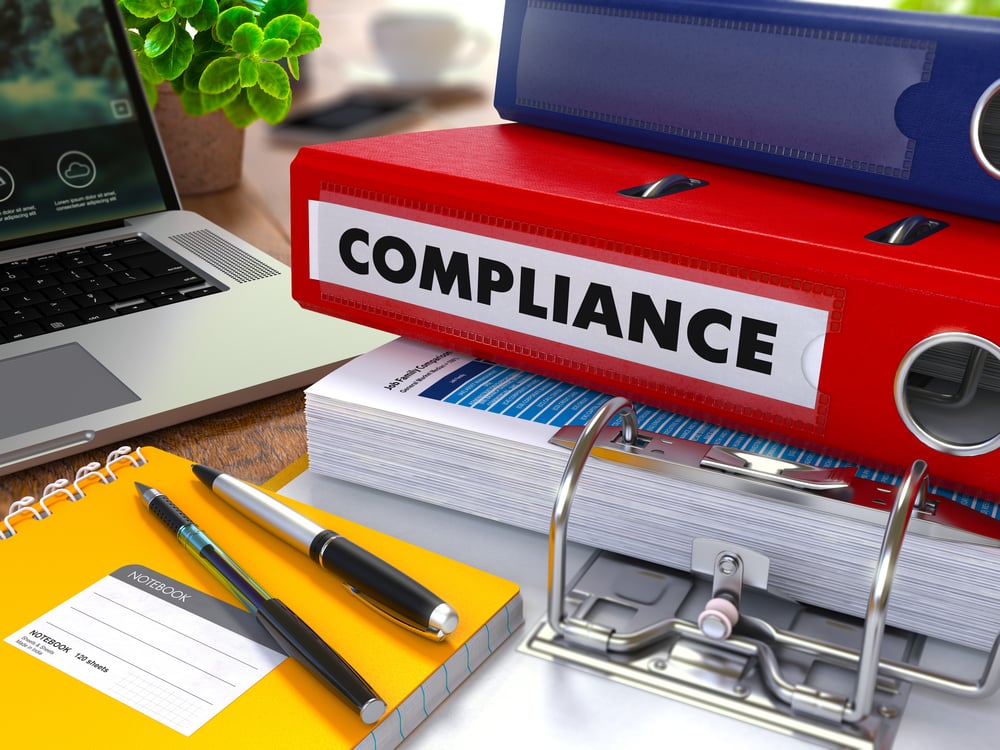Anti-Money Laundering Compliance Officer Training program Overview:

The compliance awareness hub is a resource for companies and individuals to learn about the latest compliance news, updates, and best practices.

The Training Compliance Hub is designed to streamline the process of compliance training for your organization. It provides a centralized location for tracking and managing compliance training records, as well as a library of compliance-related resources. The Hub also offers customizable reports and alerts to help you stay compliant with regulatory requirements.
The Training Compliance Hub can save you time and money by reducing the need for compliance training courses. It can also help you improve your organization's compliance posture by providing up-to-date resources and information.
A regulatory compliance training program is a set of activities designed to help an organization comply with applicable laws and regulations.
Compliance training is training that covers the requirements of a specific law or regulation. It can be provided by an outside organization, such as a trade association, or by an in-house compliance team.
Compliance training records are documents that show who has completed compliance training, when the training was completed, and what was covered in the training.
Customizable reports allow you to generate reports on your compliance training activities that can be tailored to your specific needs.
Occupational safety and health is the branch of public health that deals with the prevention of workplace injuries, illnesses, and death.
Environmental compliance is the process of ensuring that an organization complies with environmental laws and regulations.
Information security is the practice of protecting electronic information from unauthorized access or theft.
Data privacy is the practice of protecting personal information from unauthorized disclosure.
Workplace discrimination is the unequal treatment of employees based on race, color, religion, sex, national origin, age, disability, or other protected characteristic.
A compliance program is a set of policies and procedures designed to help an organization comply with applicable laws and regulations.
Employee training mandated by law or regulation.
A certificate of completion is a document that shows that an individual has successfully completed a training program.
The Training Compliance Hub will keep you up-to-date on the latest compliance-related policies and procedures.
Workplace safety training is training that covers the requirements of a specific law or regulation related to occupational safety and health.
There are many different types of compliance training, including but not limited to: regulatory compliance training, environmental compliance training, safety compliance training, and discrimination and harassment training.
Sexual harassment training:
Sexual harassment training is training that covers the requirements of a specific law or regulation related to sexual harassment.
Federal laws:
The federal laws that mandate compliance training include, but are not limited to: the Occupational Safety and Health Act, the Environmental Protection Agency's Clean Air Act, the Fair Labor Standards Act, and the Americans with Disabilities Act.
State laws:
State laws mandating compliance training vary from state to state. Some states have their own laws mandating compliance training, while others have adopted the federal laws listed above.
International laws:
There are a number of international treaties and conventions that mandate compliance training, including but not limited to: the International Labor Organization's Occupational Safety and Health Convention, the United Nations' International Covenant on Economic, Social and Cultural Rights, and the European Union's Directive on Equal Treatment in Employment.
Benefits of compliance training:
Compliance training can help organizations avoid penalties for non-compliance, improve employee safety, reduce workplace accidents and injuries, and create a culture of compliance within the organization.
Penalties for non-compliance:
Penalties for non-compliance with compliance-related laws and regulations can include, but are not limited to: fines, jail time, and loss of business licenses.
Employee safety:
Compliance training can help improve employee safety by teaching employees how to identify and avoid potential hazards in the workplace.
Workplace accidents and injuries:
Compliance training can help reduce workplace accidents and injuries by teaching employees how to identify and avoid potential hazards in the workplace.
Culture of compliance:
Compliance training can help create a culture of compliance within an organization by teaching employees the importance of complying with laws and regulations.
General data protection regulation:
The General Data Protection Regulation (GDPR) is a regulation of the European Union that became effective on May 25, 2018. The GDPR requires organizations to provide employees with data protection training.
Cybersecurity:
Cybersecurity is the practice of protecting electronic information from unauthorized access or theft. Cybersecurity training helps employees understand how to protect themselves and their organizations from cyber attacks.
Compliance regulations:
Compliance regulations are laws and regulations that mandate how organizations must conduct themselves. Compliance training helps employees understand and comply with these regulations.
Industry-specific compliance training:
Industry-specific compliance training is compliance training that is specific to a particular industry, such as healthcare or finance. Industry-specific compliance training covers the requirements of industry-specific laws and regulations.
Corporate compliance:
Corporate compliance is the process of ensuring that an organization complies with all applicable laws and regulations. Corporate compliance training helps employees understand and comply with the organization's corporate compliance policy.
Product safety:
Product safety is the practice of ensuring that products are safe for consumers to use. Product safety training helps employees understand how to ensure that the products they produce are safe for consumers to use.
Workplace safety:
Workplace safety is the practice of ensuring that the workplace is safe for employees to work in. Workplace safety training helps employees understand how to identify and avoid potential hazards in the workplace.
Health administration:
Health administration is the practice of managing the delivery of healthcare. Health administration training helps employees understand how to manage the delivery of healthcare.
Ethics training:
Ethics training is compliance training that covers the ethical principles that guide an organization's conduct. Ethics training helps employees understand how to make ethical decisions in the workplace.
Diversity and inclusion:
Diversity and inclusion training is compliance training that covers the requirements of laws and regulations relating to diversity and inclusion. Diversity and inclusion training helps.